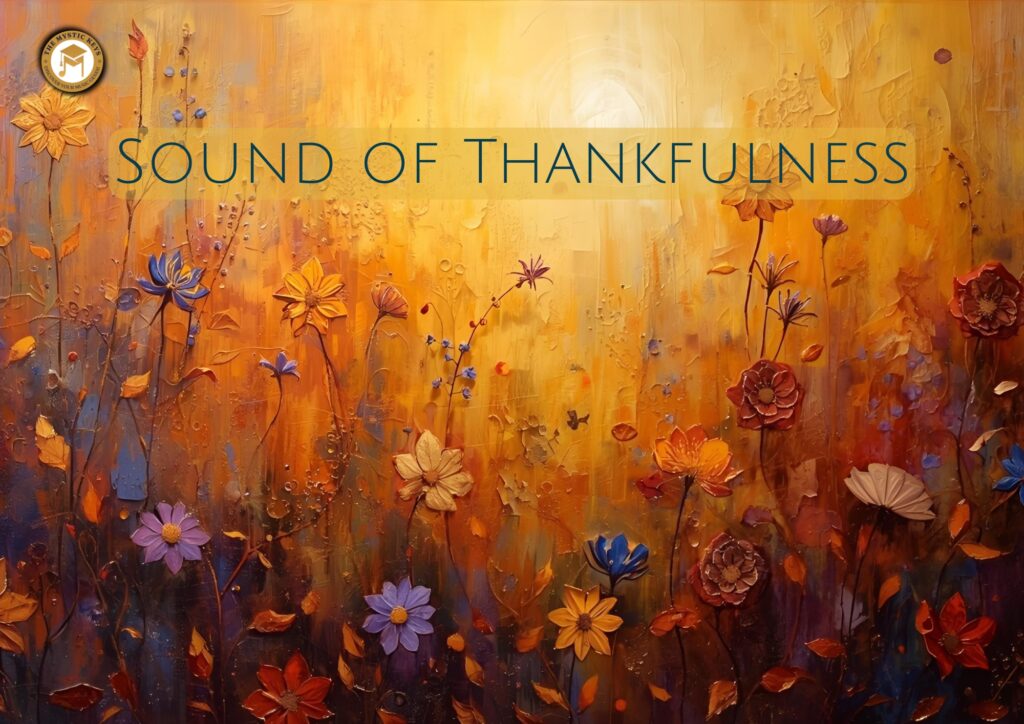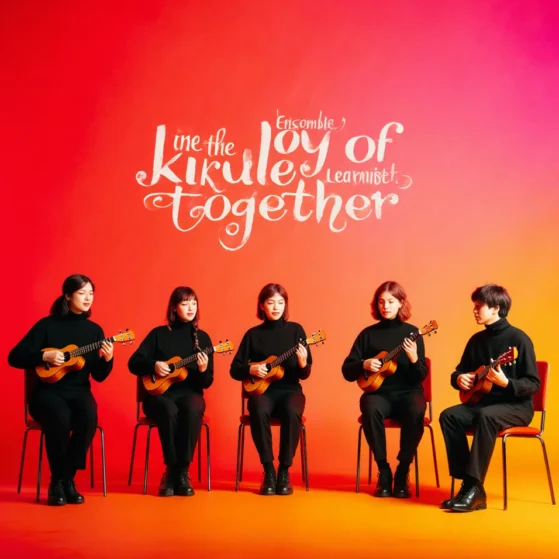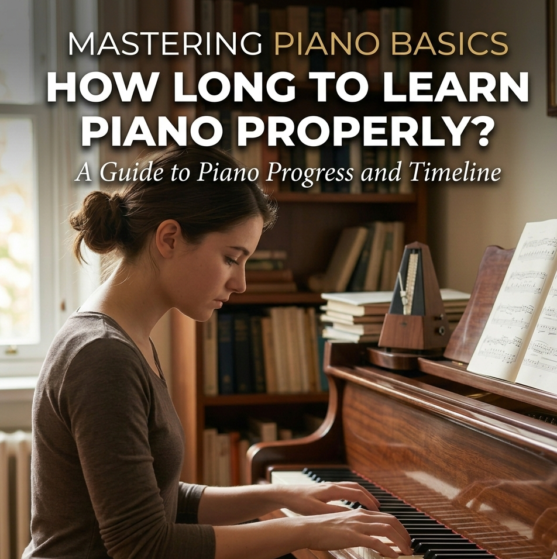The Sound of Thankfulness | How Playing Music Cultivates Gratitude
Gratitude is more than a fleeting emotion—it is a lens through which we can view life, an attitude that nurtures joy, resilience, and connection. While traditional practices like journaling, meditation, or mindful reflection are often recommended to cultivate thankfulness, music offers a uniquely immersive path to gratitude. The act of playing music creates a sound of thankfulness, a living expression of appreciation that resonates through the mind, heart, and soul. It is not just a technical exercise or a form of entertainment; it is a full-bodied experience that awakens awareness, strengthens empathy, and nurtures a deep sense of appreciation—for oneself, for others, and for the world.

The Mindful Nature of Musical Practice
At its core, music is a profoundly mindful activity. When a pianist sits at the keys, a guitarist fingers the strings, or a singer breathes into a melody, the mind is compelled to focus. Attention is drawn to rhythm, pitch, dynamics, and phrasing. In this immersive state, distractions fade, and the present moment dominates awareness.
This heightened focus mirrors mindfulness meditation, which research has shown to increase feelings of gratitude and well-being. Musicians who cultivate such awareness during practice often find themselves more appreciative of the intricate beauty of music and the human capacity to create it. Even a single well-played scale or chord progression can trigger a profound sense of wonder—an awareness of one’s abilities and the gift of sound itself.

The Emotional Sound of Thankfulness
Music has an unparalleled capacity to evoke, reflect, and transform human emotion. A major chord can evoke joy, a minor progression can stir melancholy, and a dissonant harmony can provoke tension and release. By engaging with music, musicians develop emotional literacy—the ability to recognize, process, and express complex feelings.
This emotional depth encourages gratitude. When a musician recognizes the nuances of their own feelings or appreciates the emotional resonance a piece evokes in others, a sense of thankfulness naturally arises. Music becomes a medium through which the richness of human experience is both acknowledged and celebrated. For example, a cello’s deep resonance may remind a performer of family warmth, or a high-pitched flute melody may evoke memories of carefree childhood days, fostering appreciation for life’s layered experiences.

The Collaborative Sound of Thankfulness
Music thrives on connection. Whether in a chamber ensemble, an orchestra, a band, or a choir, collaboration is essential. Musicians must listen attentively, respond sensitively, and harmonize seamlessly with others. This practice of shared musical dialogue fosters empathy, respect, and appreciation for others’ talents and perspectives.
Even solo musicians experience connection—albeit in a different form. Sharing compositions online, performing for friends, teaching, or recording music allows the artist to communicate and resonate with an audience. Each note becomes a gift, an offering, and a bridge to others. In these moments, gratitude flows both ways: the musician appreciates the opportunity to share, and the listener values the expression of artistry and emotion.

The Disciplined Sound of Thankfulness
Learning an instrument requires patience, persistence, and dedication. Hours of practice, repeated mistakes, and incremental progress teach the value of perseverance. Every improvement, no matter how small, is a testament to effort and growth. This discipline fosters gratitude—not just for the ability to learn but also for the journey itself.
For example, a beginner guitarist who struggles with barre chords and eventually masters them experiences a surge of appreciation for their own diligence. Similarly, a pianist who slowly deciphers a complex Chopin étude comes to value both their hard work and the music’s intricate beauty. Music, in this sense, teaches that patience, effort, and incremental growth are worthy of acknowledgment and thanks.

The Neuroscientific Sound of Thankfulness
Scientific research increasingly highlights the link between music, emotion, and gratitude. Playing music activates multiple areas of the brain, including those associated with reward, pleasure, and emotional processing. The release of dopamine during musical engagement creates feelings of joy and satisfaction. These positive neurochemical responses reinforce the value of the musical experience and, by extension, encourage a sense of thankfulness.
Additionally, studies suggest that playing music reduces stress, improves mood, and enhances social bonding—all factors that contribute to greater appreciation for life. Through music, the brain experiences a feedback loop of joy and gratitude, deepening the emotional resonance of every note played.

Music as a Ritual of Reflection
For many musicians, music is not just routine; rather, it becomes a ritual that nurtures reflection and gratitude—a true Sound of Thankfulness. For instance, a morning practice can feel like meditation, steadying the mind before the day begins. Similarly, an evening composition offers a pause, helping process the events of the day. Moreover, improvisation provides freedom, giving space to release emotions that words cannot capture. Taken together, these practices create a continuous flow, where gratitude naturally unfolds.
To illustrate, consider a cellist. Each morning they begin with simple scales. Yet, these are not mere chores; they are mindful moments to appreciate the gift of sound and the ability to create—a daily encounter with the Sound of Thankfulness. In the same way, a singer’s improvisations mirror daily experiences. Each time, a phrase acknowledges joy, struggle, or hope, transforming life into song. Thus, through these small rituals, music moves from habit to reflection, and from reflection to thankfulness. In this way, it becomes both a mirror that reveals gratitude and a lens that magnifies it, resonating as a true symphony of appreciation.

Appreciating Life’s Everyday Symphony
The practice of music trains the mind to notice subtleties in sound, rhythm, and timing. Musicians often become more attuned to the musicality in everyday life—the cadence of conversation, the rhythm of footsteps, birdsong at dawn, or the hum of a bustling city. This heightened awareness becomes what can be called the “Sound of Thankfulness,” where each ordinary noise is perceived as part of life’s rich symphony, inviting appreciation.
Gratitude, therefore, extends beyond music itself. Musicians cultivate a habit of noticing and valuing life’s small joys, recognizing that beauty exists in both grand symphonies and simple, fleeting sounds. Each day becomes a score waiting to be acknowledged, each experience a note worthy of thanks—a living melody of appreciation that resonates through daily life.

Gratitude in the Act of Sharing Music
Sharing music—whether teaching, performing, or composing—is an act of giving. In these moments, musicians share more than skill. They offer emotion, creativity, and energy. As the music is received, the sound of thankfulness begins to emerge. The musician feels grateful for the chance to contribute. At the same time, the audience values the gift they receive. Through this exchange, a sense of community slowly grows. It nurtures generosity and strengthens bonds. Step by step, music shows us that gratitude is never solitary. It is shared, social, and deeply human.

The Positive Feedback Loop of Music and Gratitude
Engaging with music naturally cultivates gratitude. In turn, that gratitude deepens our engagement with music. As thankfulness grows, mindfulness, patience, and emotional openness also grow. Consequently, these traits improve how we perform, interpret, and connect with music. Meanwhile, music’s immersive nature highlights our progress, the encouragement we receive, and the beauty around us. Gradually, this exchange becomes a reinforcing loop: music sparks gratitude, and gratitude amplifies the joy of making music.

Conclusion: Music as a Gateway to Thankfulness
Ultimately, playing music is more than learning notes. It is more than performing for others. Music nurtures awareness, emotional depth, connection, and reflection. Every note, every melody, and every chord is a chance to see life’s gifts. Each one is an opportunity to express gratitude.
Music is immersive, mindful, and communal. It teaches us to notice life. It helps us appreciate beauty within and around us. Music is not just an art form. It is a pathway to thankfulness. It is a symphony of appreciation that goes beyond the stage or practice room.
At The Mystic Keys, we believe every melody carries gratitude. In every beat, we feel thankfulness. Even in silence, echoes of appreciation remain. Creating music is, at its core, being thankful for the gift of life.
For more information and exciting resources about learning music, visit our website at The Mystic Keys. For more music content and exciting offers follow us on
Facebook, Instagram, YouTube, LinkedIn, Twitter, Pinterest, and Threads,








